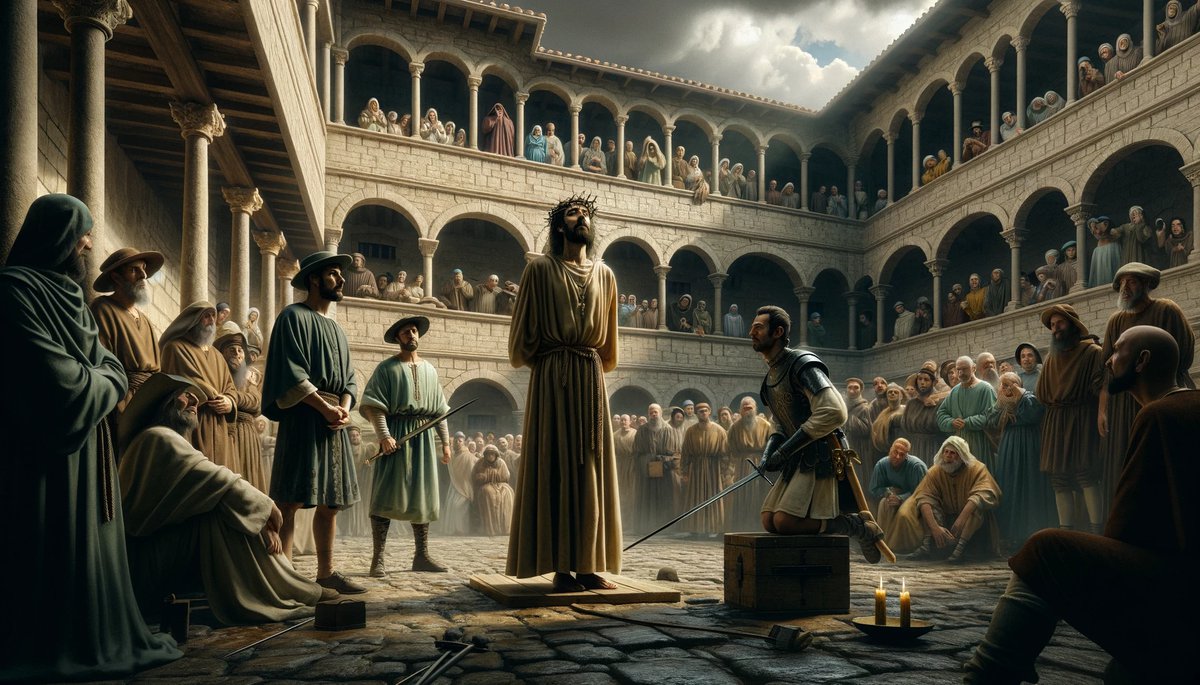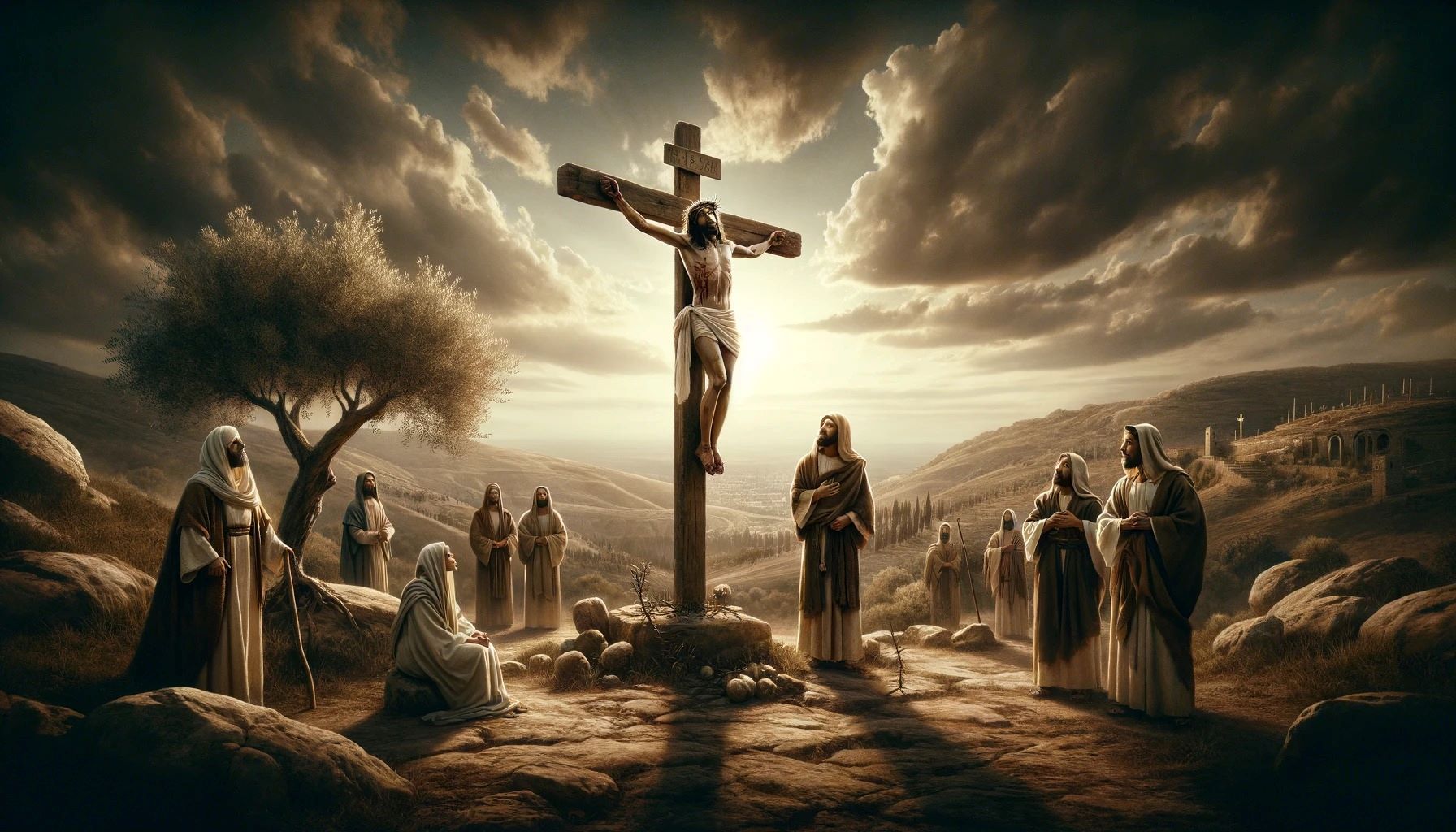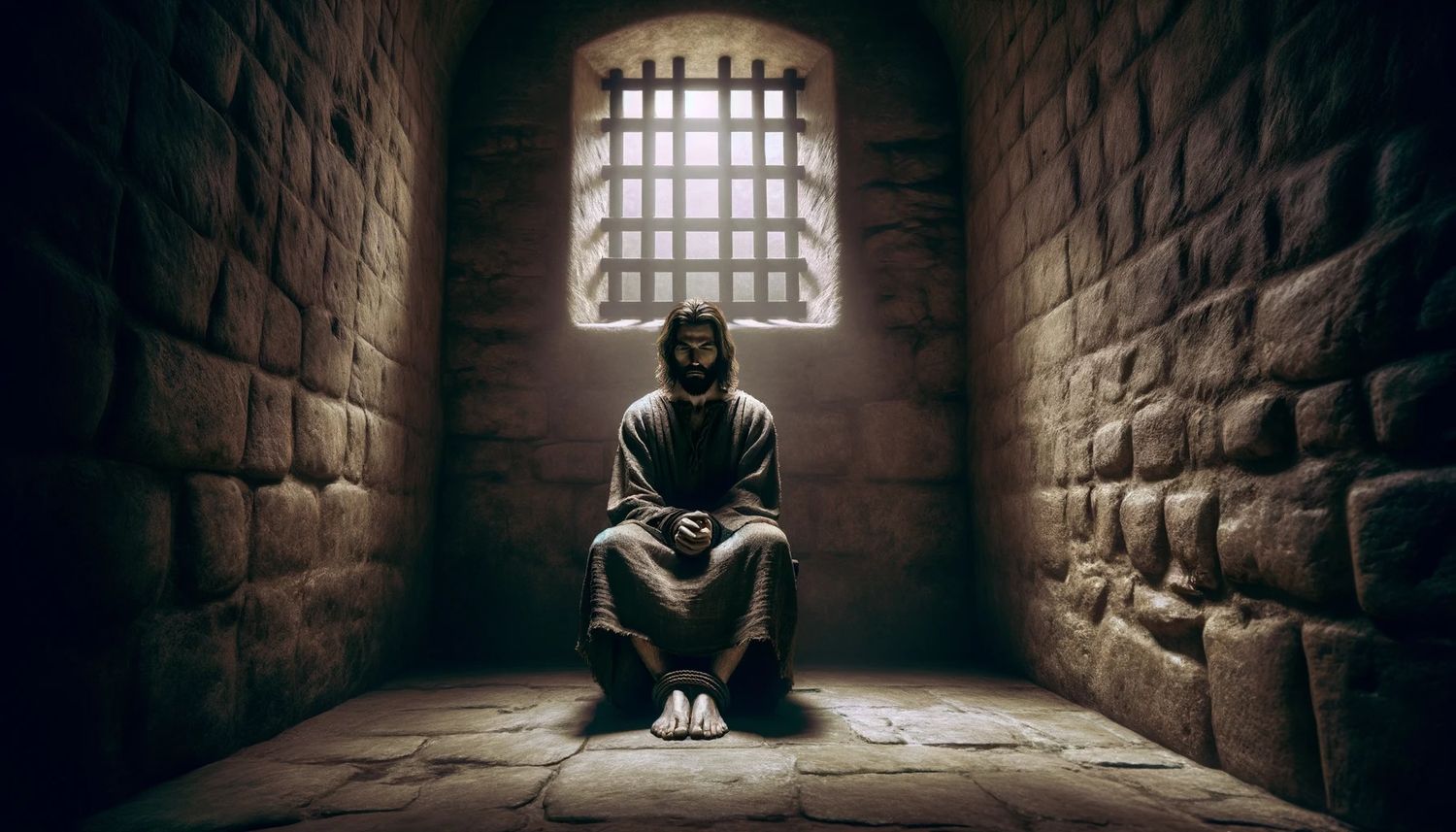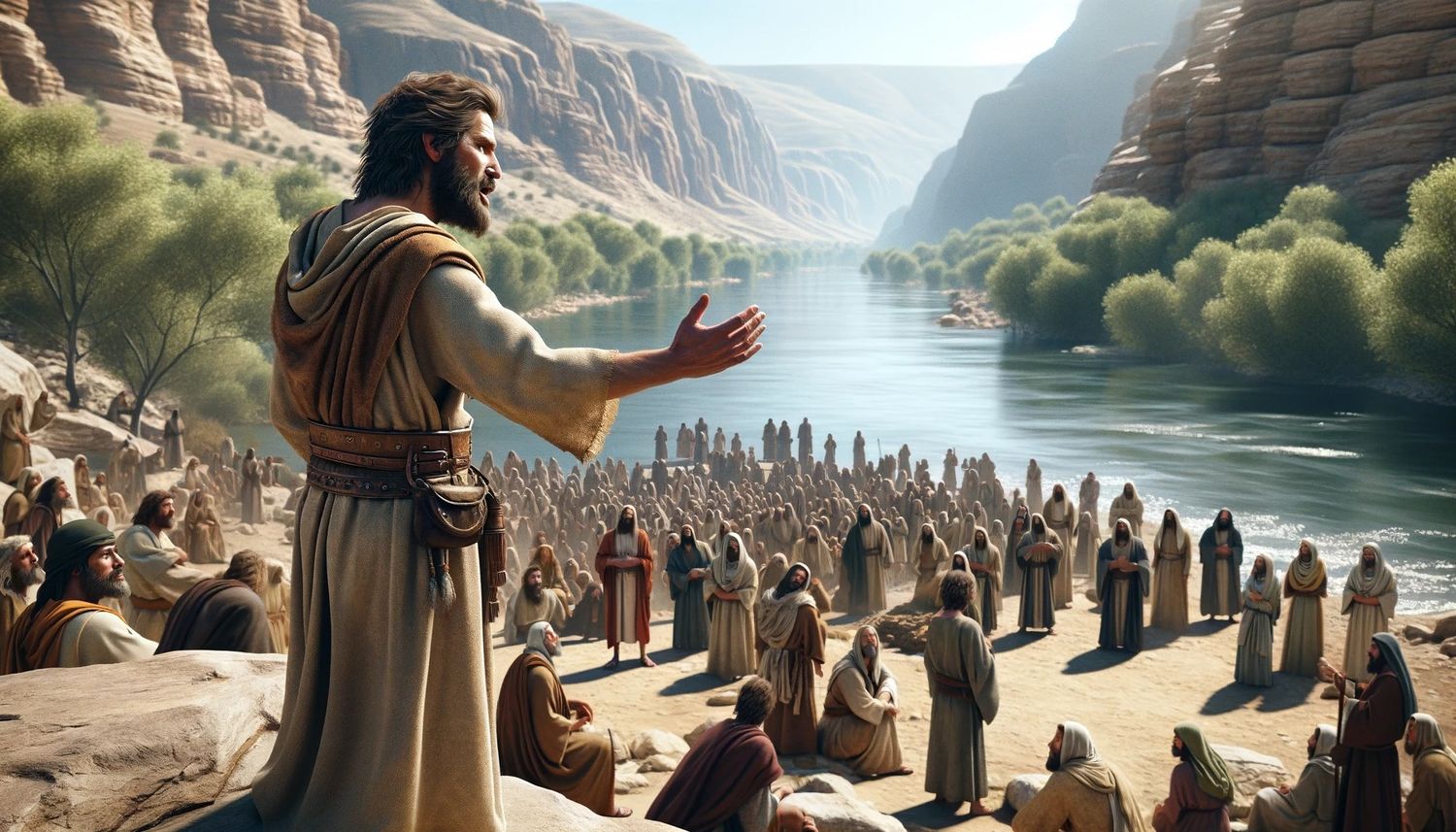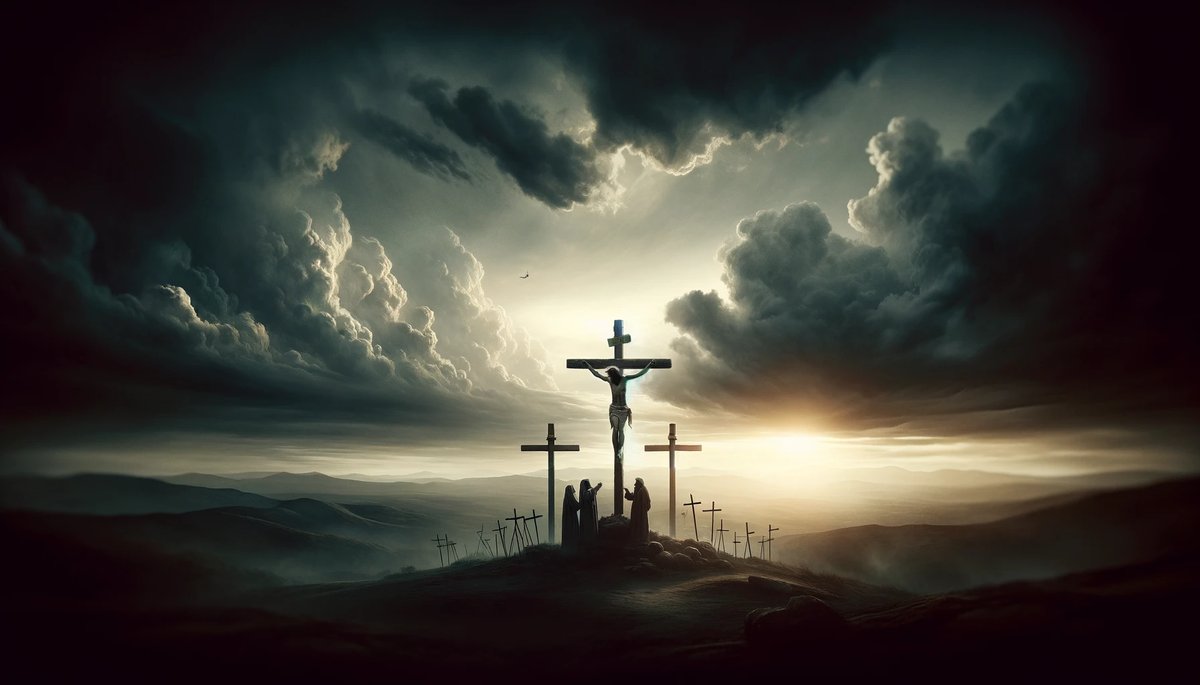Home>Theology and Spirituality>Why Did Jesus Let John The Baptist Die
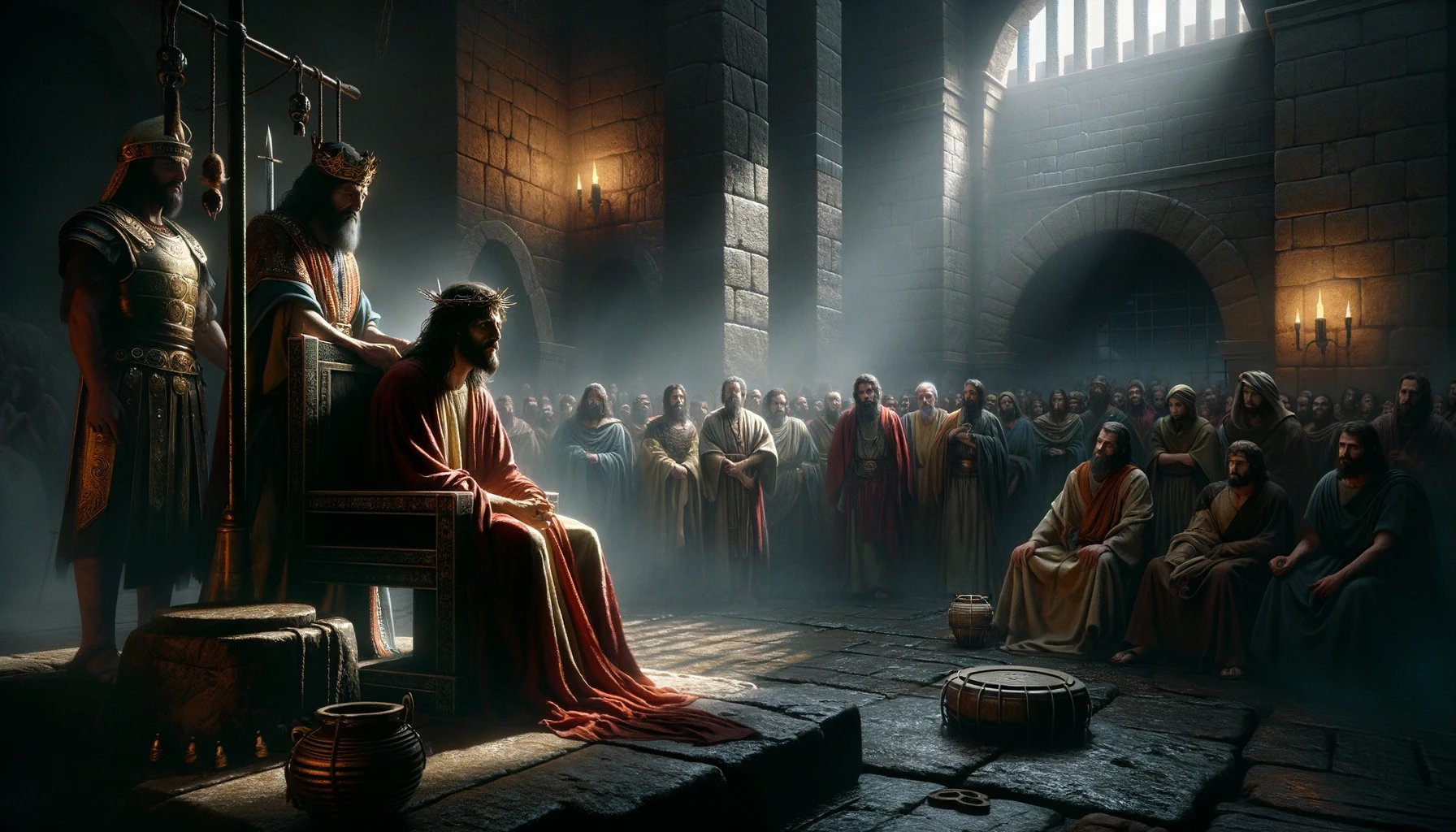

Theology and Spirituality
Why Did Jesus Let John The Baptist Die
Published: February 23, 2024
Jason DeRose, Managing Editor at Christian.net, uses his expertise in religion and journalism to deepen understanding of faith's societal impacts. His editorial leadership, coupled with a strong academic background, enriches the platform’s diverse content, earning him recognition in both journalism and religious circles.
Explore the theological significance of Jesus allowing the death of John the Baptist. Gain insights into spirituality and divine purpose. Discover more.
(Many of the links in this article redirect to a specific reviewed product. Your purchase of these products through affiliate links helps to generate commission for Christian.net, at no extra cost. Learn more)
Table of Contents
Introduction
The life and teachings of Jesus Christ have captivated the hearts and minds of people for centuries. His profound impact on humanity is evident in the way his life, death, and resurrection have shaped the course of history. One of the enigmatic aspects of Jesus' ministry is his relationship with John the Baptist, a revered figure known for his fiery preaching and unwavering commitment to preparing the way for the Messiah.
The story of John the Baptist's life and his eventual execution raises profound questions about the nature of God's plan and the role of suffering in the lives of those who faithfully serve Him. As we delve into the circumstances surrounding John's death and Jesus' response to this tragic event, we are compelled to explore the deeper spiritual significance of these events and their implications for our own lives.
In this article, we will embark on a journey to unravel the mystery of why Jesus allowed John the Baptist to die. We will examine the profound impact of John's ministry, the circumstances leading to his arrest and execution, and Jesus' response to the loss of his beloved cousin and fellow prophet. Through this exploration, we will seek to gain insight into the divine purpose behind John's death and the profound spiritual truths that emerge from this poignant chapter in the narrative of Jesus' earthly ministry.
Join me as we delve into the depths of this compelling story, seeking to uncover the timeless wisdom and spiritual truths that continue to resonate with believers and seekers alike. Through our exploration, may we gain a deeper understanding of the profound love, purpose, and sovereignty of God, even in the midst of life's most perplexing and heart-wrenching moments.
Read more: How Did The John The Baptist Die
The Ministry of John the Baptist
John the Baptist emerged onto the Judean scene as a striking and enigmatic figure, clad in camel's hair and subsisting on a diet of locusts and wild honey. His unconventional appearance and ascetic lifestyle immediately captured the attention of the people, drawing crowds from Jerusalem, Judea, and the surrounding regions to the banks of the Jordan River where he preached and baptized.
John's ministry was characterized by a fervent call to repentance and a prophetic declaration of the imminent arrival of the long-awaited Messiah. His message reverberated with urgency, challenging the people to turn away from their sinful ways and prepare their hearts for the coming of the Kingdom of God. With unwavering conviction, John proclaimed, "Repent, for the kingdom of heaven has come near" (Matthew 3:2, NIV), compelling his listeners to confront their spiritual apathy and embrace a radical transformation of heart and mind.
Central to John's ministry was the symbolic act of baptism, a ritual cleansing that signified a turning away from sin and a commitment to a renewed way of life. Through the waters of baptism, John offered a tangible expression of the people's desire for spiritual renewal and their readiness to embrace the transformative work of the Messiah.
John's uncompromising message and his bold confrontation of religious hypocrisy drew the attention of religious leaders and authorities, who were both intrigued and threatened by his growing influence. Despite the mounting opposition and the looming specter of persecution, John remained resolute in his mission, steadfastly pointing the way to the One who would come after him, whose sandals he felt unworthy to untie.
As the forerunner of Jesus, John the Baptist played a pivotal role in preparing the hearts of the people for the arrival of the Messiah. His ministry served as a powerful catalyst, stirring the collective consciousness of the Jewish people and igniting a fervent expectation for the fulfillment of God's redemptive promises. Through his prophetic proclamation and his radical call to repentance, John set the stage for the transformative ministry of Jesus, laying the groundwork for the profound spiritual awakening that would soon sweep across the land.
In the next section, we will delve into the harrowing events that led to the arrest and execution of John the Baptist, shedding light on the profound implications of his untimely death and Jesus' response to this tragic loss.
The Arrest and Execution of John the Baptist
The unyielding fervor of John the Baptist's ministry and his unapologetic call for repentance and spiritual renewal had drawn the attention of Herod Antipas, the tetrarch of Galilee and Perea. Herod, who had unlawfully taken Herodias, the wife of his brother Philip, as his own, found himself at odds with John's uncompromising stance on righteousness and moral conduct. Herodias, resentful of John's public condemnation of her illicit relationship with Herod, harbored a deep-seated grudge against the outspoken prophet.
In a fateful turn of events, Herodias seized an opportune moment during Herod's birthday celebration to orchestrate the arrest of John the Baptist. Her daughter, Salome, captivated Herod with her dance, prompting him to make a rash vow, offering her anything she desired, up to half his kingdom. Influenced by her mother's vengeful agenda, Salome requested the head of John the Baptist on a platter.
Despite his inner turmoil and reverence for John, Herod succumbed to the pressure of his oath and ordered the execution of the revered prophet. John, imprisoned and isolated, faced the grim reality of impending martyrdom. His unwavering commitment to truth and righteousness had brought him face to face with the brutal consequences of confronting the powers of darkness and moral corruption.
The execution of John the Baptist sent shockwaves through the land, eliciting a profound sense of grief and disbelief among his followers and those who had been deeply impacted by his prophetic ministry. The loss of this fearless voice in the wilderness reverberated with a haunting poignancy, leaving many to grapple with the inexplicable tragedy of a life cut short in the prime of its purpose.
As we confront the harrowing details of John's arrest and execution, we are confronted with the stark reality of the cost of discipleship and the relentless opposition that often accompanies the uncompromising pursuit of truth and righteousness. John's martyrdom stands as a sobering reminder of the profound sacrifices made by those who dare to confront the forces of darkness and stand unwaveringly for the cause of justice and righteousness.
In the subsequent section, we will delve into Jesus' response to the tragic loss of John the Baptist, seeking to glean insights into the profound implications of this pivotal moment in the narrative of Jesus' earthly ministry.
Jesus' Response to John's Death
The news of John the Baptist's tragic death undoubtedly reverberated deeply within the heart of Jesus. John was not only a revered prophet and forerunner of the Messiah, but also his beloved cousin. The bond between Jesus and John transcended mere familial ties; it was rooted in a shared mission to herald the arrival of the Kingdom of God and to awaken the hearts of the people to the transformative power of repentance and redemption.
Upon hearing of John's execution, Jesus sought solitude, withdrawing to a desolate place to grieve and process the weight of this profound loss. The scriptures poignantly capture this poignant moment, stating, "When Jesus heard what had happened, he withdrew by boat privately to a solitary place" (Matthew 14:13, NIV). In his humanity, Jesus experienced the depths of sorrow and mourning, grappling with the anguish of losing a cherished companion and fellow prophet.
As Jesus sought solace in the midst of his grief, the crowds, driven by their relentless pursuit of healing and hope, followed him to the remote location where he had withdrawn. Despite his own sorrow, Jesus was moved with compassion as he encountered the multitude that had gathered, demonstrating his unwavering commitment to minister to the broken and the hurting.
In a profound display of empathy and divine love, Jesus turned his attention to the pressing needs of the people, setting aside his personal grief to extend healing and restoration to those who sought him. The scriptures vividly depict this transformative moment, stating, "When Jesus landed and saw a large crowd, he had compassion on them and healed their sick" (Matthew 14:14, NIV).
This poignant response to the people's needs amidst his own grief serves as a powerful testament to the selfless and compassionate nature of Jesus' ministry. Even in the midst of profound personal loss, Jesus exemplified unwavering love and empathy, extending healing and hope to those who sought him, embodying the very essence of his redemptive mission.
Through his response to John's death, Jesus demonstrated the profound intertwining of human emotion and divine purpose. His ability to navigate the depths of grief while extending compassion and healing to others serves as a poignant example of the transformative power of love and empathy in the face of profound loss and suffering.
In the subsequent section, we will delve into the profound spiritual significance of John's death, seeking to unravel the divine purpose that transcends the tragedy of his untimely martyrdom.
Understanding the Purpose of John's Death
The tragic and untimely death of John the Baptist raises profound questions about the divine purpose behind his martyrdom. In seeking to understand the deeper significance of John's death, we are compelled to explore the intricate interplay of human agency and divine sovereignty, as well as the profound spiritual truths that emerge from this poignant chapter in the narrative of Jesus' earthly ministry.
John's martyrdom stands as a stark reminder of the cost of unwavering commitment to truth and righteousness in the face of entrenched opposition and moral corruption. His fearless proclamation of repentance and his unyielding call for spiritual renewal brought him into direct confrontation with the powers of darkness and the forces of religious and political oppression. In his martyrdom, John bore witness to the enduring legacy of prophetic courage and the profound impact of a life wholly surrendered to the divine call.
Moreover, John's death serves as a poignant foreshadowing of the ultimate sacrifice made by Jesus Christ on the cross. As the forerunner of the Messiah, John's martyrdom echoes the redemptive narrative of selfless sacrifice and the triumph of divine love over the forces of sin and death. His death, like that of countless martyrs throughout history, stands as a testament to the enduring power of faith and the unwavering commitment to truth, even in the face of persecution and suffering.
Furthermore, John's martyrdom serves to underscore the profound truth that the purposes of God transcend the limitations of human understanding. While the circumstances surrounding John's death may appear shrouded in inexplicable tragedy, the divine tapestry of redemption and restoration weaves together the broken threads of human suffering and loss, ultimately culminating in the triumph of God's redemptive plan.
In the enigmatic tapestry of divine providence, John's death finds its place as a poignant testament to the enduring legacy of prophetic courage, the transformative power of unwavering faith, and the ultimate triumph of divine love over the forces of darkness. Through the lens of faith and spiritual insight, we are invited to contemplate the profound purpose that transcends the tragedy of John's untimely martyrdom, drawing inspiration from his unwavering commitment to truth and righteousness, and finding hope in the enduring promise of redemption and restoration.
In the subsequent section, we will delve into the enduring legacy of John the Baptist's life and ministry, seeking to glean timeless wisdom and spiritual insights from his profound example of unwavering faith and prophetic courage.
Read more: Why Did Jesus Christ Die
Conclusion
The story of John the Baptist's life and tragic death stands as a poignant testament to the enduring legacy of prophetic courage, unwavering commitment to truth, and the transformative power of faith in the face of adversity. His uncompromising call to repentance, his unwavering proclamation of the imminent arrival of the Messiah, and his ultimate sacrifice in the face of persecution and martyrdom continue to resonate with timeless significance and spiritual insight.
In the wake of John's martyrdom, Jesus' response to the loss of his beloved cousin and fellow prophet serves as a profound example of the intertwining of human emotion and divine purpose. Jesus, in his humanity, experienced the depths of sorrow and mourning, yet his unwavering love and compassion compelled him to minister to the broken and the hurting, embodying the very essence of his redemptive mission.
The tragic death of John the Baptist, while shrouded in inexplicable sorrow and loss, ultimately finds its place within the divine tapestry of redemption and restoration. His martyrdom echoes the redemptive narrative of selfless sacrifice and the triumph of divine love over the forces of sin and death, foreshadowing the ultimate sacrifice made by Jesus Christ on the cross.
As we reflect on the profound spiritual significance of John's life and death, we are invited to contemplate the enduring legacy of prophetic courage and unwavering faith. His martyrdom stands as a poignant reminder of the cost of discipleship and the profound sacrifices made by those who dare to confront the forces of darkness and stand unwaveringly for the cause of justice and righteousness.
In the enigmatic tapestry of divine providence, John the Baptist's life and death continue to inspire and challenge us to embrace unwavering faith, unyielding commitment to truth, and a profound trust in the enduring promise of redemption and restoration. Through the timeless wisdom and spiritual insights gleaned from the narrative of John's life and ministry, we are compelled to confront the profound implications of his unwavering faith and prophetic courage, finding hope in the enduring promise of God's redemptive plan for humanity.




